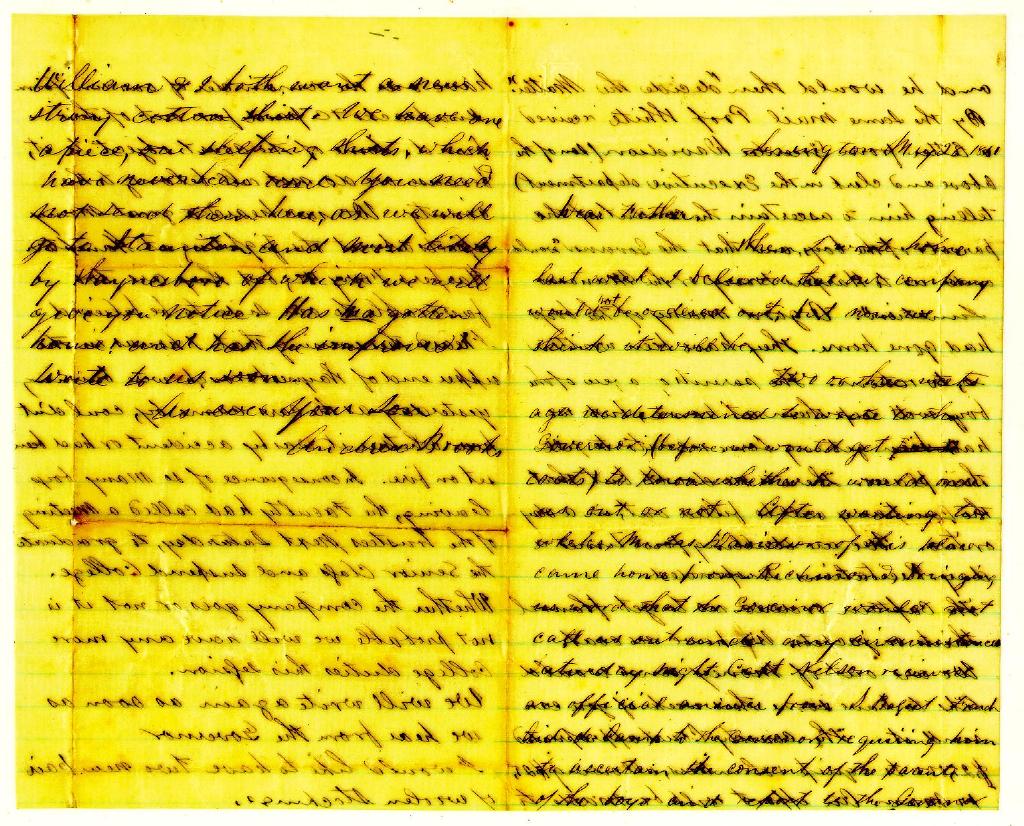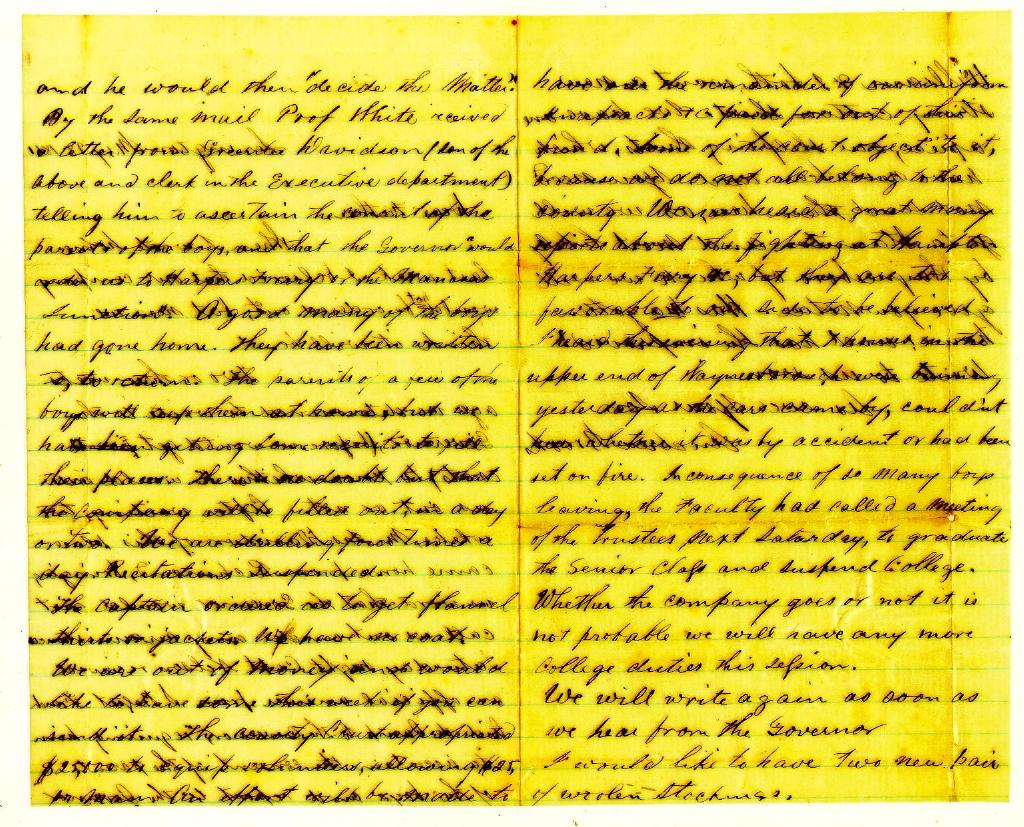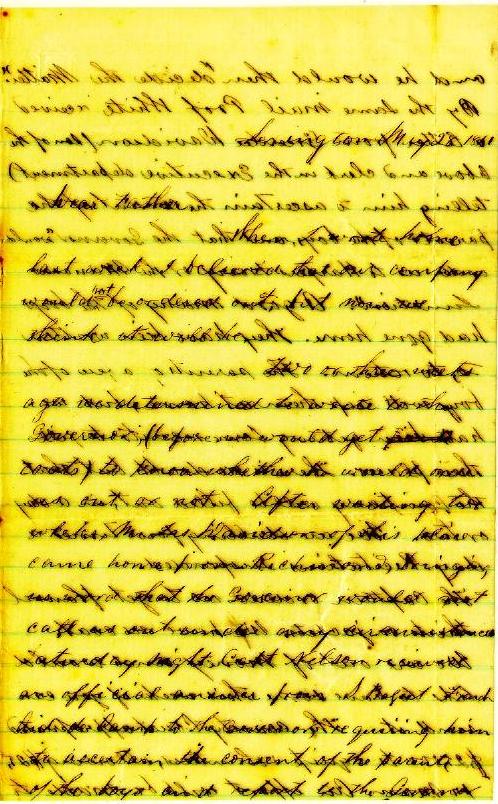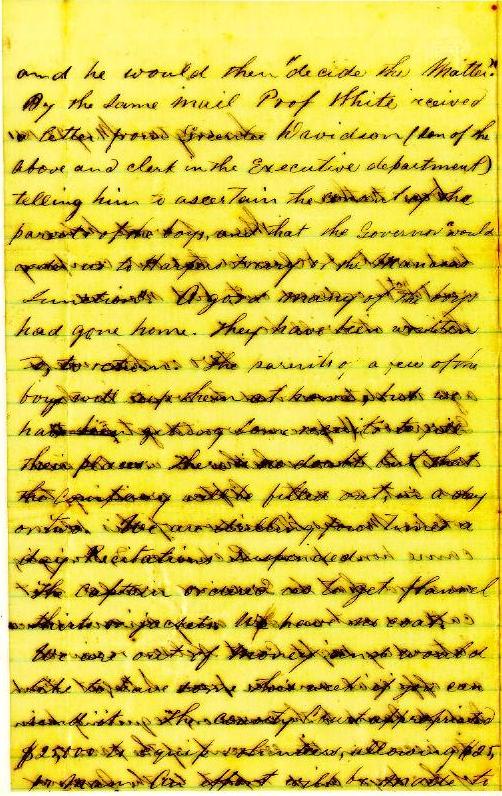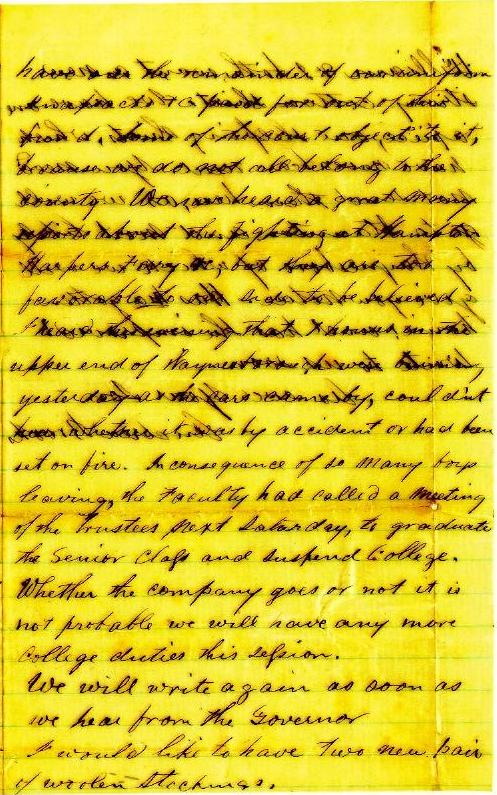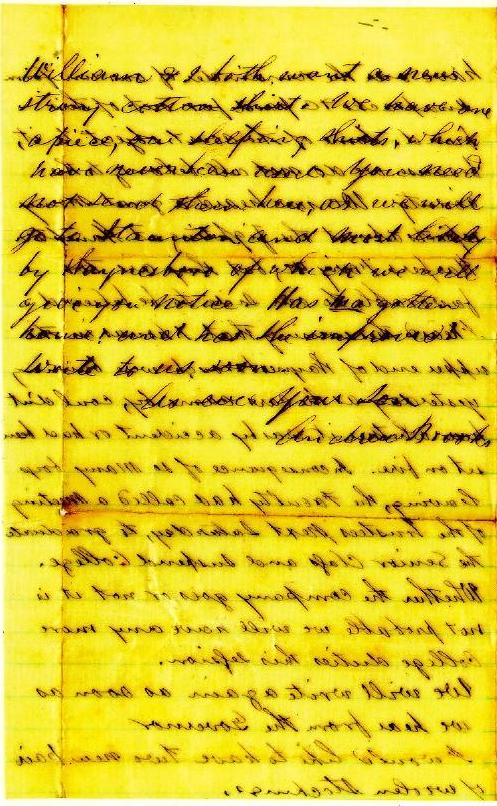Letter to James Brooks
Summary
ALS .pp May 28, 1861 Andrew Brooks to James Brooks, May 28, 1861 Andrew Brooks writes about his fellow students' unsuccessful appeals to the governor to call out their company from Washington College. He also asks his family to send money to help outfit the company.
May 28, 1861
Lexington
Dear Father,
When I wrote home
last week I believed that our company
would not be ordered out, but now we
think we will be.
Two or three weeks
ago, we determined to write to the
Governor (before we would get
coats) to know whether he would order
us out or not. After waiting two
weeks, Mr. Jas Davidson of this place
came home from Richmond, bringing
us word that the Governor would not
call us out under any circumstances.[1]
Saturday night Capt. Nelson received
an official answer from S. Rafael French,
Aid de Camp to the Governor requiring him
to ascertain the consent of the parents
of the boys and to report to the Governor,
and he would then "decide the matter."
By the same mail Prof. White received
a letter from Greenlee Davidson (son of the
above and clerk in the Executive department)
telling him to ascertain the consent of the
parents of the boys, and that the Governor "would
order us to Harpers Ferry or the Manasas
Junction"[2]. A good many of the boys
had gone home. They have been written
to, to return. The parents of a few of the
boys will keep them at home, but we
have been getting some recruits to fill
their places. There is no doubt but that
the company will be filled out, in a day
or two. We are drilling four times a
day. Recitations suspended.
The captain ordered us to get flannel
shirts or jackets. We have no coat.
We are out of money and would
like to have some this week if you can
send it. The County Court appropriated
$25,000 to equip volunteers, allowing $25
per man. An effort will be made to
have ou the remainder of our uniform
knapsacks paid &c -paid for out of this
fund. Some of the court object to it,
because we do not all belong to the
county. We have heard a great many
reports about the fighting at Hampton
Harpers Ferry illeg., but they are too
favorable to our side to be believed.
I heard this evening that 7 houses in the
upper end of Waynesborough were burning
yesterday as the cars came by, couldn't
hear whether it was by accident or had been
set on fire[3]. In consequence of so many boys
leaving, the Faculty has called a meeting
of the Trustees, next Saturday, to graduate
the Senior Class and suspend College.
Whether the company goes or not it is
not probable we will have any more
College duties this session.[4]
We will write again as
soon as we hear from the Governor.
I would like to have two new pair
of woolen stockings.
William & I both want a new
strong cotton shirt. We have one
apiece, our sleeping shirts which
have never been used. You need
not send them here, as we will
go to Staunton and most likely
by Waynesboro of which we will
give you notice. Has Ma gotten
home? and has she improved?
Write to us soon.
As ever your son,
Andrew Brooks
Footnotes
- 1
As Andrew observes, throughout May the company requested to be brought into service. Virginia's Governor John Letcher finally called the Liberty Hall Volunteers to action on June 2, 1861 and ordered them to proceed to Harper's Ferry, where the Valley forces were mobilizing.
- 2
When the Liberty Hall Volunteers company was formed in April of 1861, Professor Alexander Nelson assumed the role of captain, but he was forced to resign in June because he contracted erysipelas (Bean 7, 9, 11). James White, a professor of Greek at Washington College, was commissioned as a Captain when Company I was organized on June 2, 1861. Because he was thirty-two at the time that he became a captain, White was nicknamed "Old Zeus." He resigned on September 6, 1861 due to illness (see Turner).
- 3
Andrew Brooks may be referring to the fighting that broke out near Hampton Roads, Virginia on May 18, 1861 (Denney, 44). Harper's Ferry was a crucial site during the Civil War, not only because it was formerly a Federal arsenel, but because it was "the northern gateway to the Valley of Virginia" (Robertson, The Stonewall Brigade, 4). On April 18, 1861, even before Virginia seceded from the union, Virginia militia members took control of Harper's Ferry in order to win possession of the arsenel. Andrew's speculations demonstrate how rumors were swirling in the early days of the war.
- 4
Classes at Washington College were suspended on June 1 (Turner, 39).
